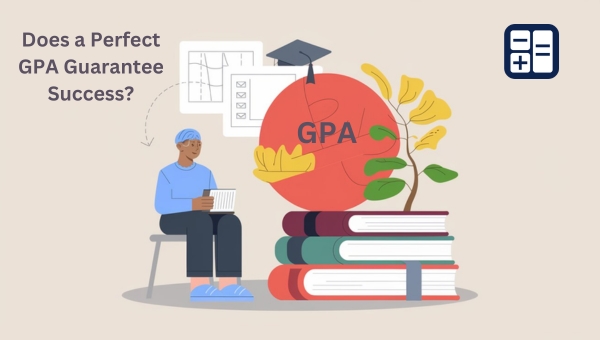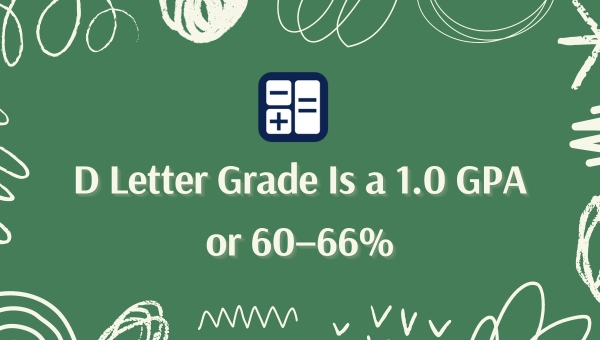Highest GPA Secrets You Must Know!

Achieving the highest GPA can seem like a daunting task, but it doesn’t have to be. In this guide, we’ll delve into what constitutes the highest GPA, explore different grading scales, and unveil the secrets behind weighted and unweighted GPAs.
We’ll also discuss the importance of a high GPA for college admissions and scholarships, and provide proven strategies for maintaining stellar grades. By the end of this article, you’ll be equipped with actionable insights to strive for and maintain the highest GPA possible. Let’s dive in and unlock your academic potential!
The Concept of Highest GPA
Achieving the highest GPA is a goal that many students strive for throughout their academic journey. Understanding what constitutes the highest GPA can help you set realistic goals and measure your progress.

Below, we will explore different aspects of the highest GPA, including standardized maximums, the differences between weighted and unweighted GPAs, and how high GPAs are used to recognize academic excellence and award honors.
Standardized Maximums
When we talk about the highest possible GPA, it’s important to know the common scales used:
- 4.0 Scale: This is the most widespread scale in the United States. A 4.0 represents perfect grades.
- 5.0 Scale: Some schools use this scale to account for advanced classes. A 5.0 indicates an A in a weighted course.
Knowing these scales can help you understand where you stand and what you need to aim for.
Weighted vs. Unweighted GPAs
The difference between weighted and unweighted GPAs can significantly impact what is considered the ‘highest’ GPA:
- Unweighted GPA: This scale usually goes up to 4.0 and does not consider the difficulty of the courses.
- Weighted GPA: This scale can go higher than 4.0, taking into account the rigor of advanced courses like AP or honors classes.
Understanding these differences is crucial for assessing your academic performance accurately.
Academic Achievements and Honors
High GPAs are often used as a benchmark for academic excellence:
- Honor Rolls: Many schools have honor rolls that recognize students with high GPAs.
- Scholarships: A high GPA can make you eligible for various scholarships.
- Awards: Academic awards often require a minimum GPA for consideration.
These recognitions not only boost your resume but also provide tangible rewards for your hard work.
Can You Exceed The Typical Highs?
When it comes to achieving the highest GPA, many students wonder if it’s possible to go beyond the standard limits.

While most schools have a set maximum GPA, certain conditions can allow students to surpass these typical highs. Let’s dive into some scenarios where exceeding the highest GPA is attainable and also compare how different countries handle their grading systems.
Exceptional Cases
In specific situations, students can exceed the standard maximum GPA. These exceptional cases often involve:
- Advanced Placement (AP) Courses: These are college-level classes offered in high school. They usually come with a higher weight, meaning an A in an AP class can be worth more than an A in a regular class.
- Honors Courses: Similar to AP courses, honors classes are more challenging and often have a weighted GPA system. This allows students to earn a GPA higher than the traditional maximum of 4.0.
- Dual Enrollment: Some schools allow students to take college courses while still in high school. These courses can also be weighted, contributing to a higher GPA.
International Perspectives
Different countries have varied approaches to grading systems, which means what constitutes a high GPA can differ widely.
Here’s a quick look:
- United States: The standard GPA scale is typically out of 4.0, but weighted GPAs can go higher with AP and honors classes.
- United Kingdom: Uses a different system altogether, with grades like A*, A, B, etc. There’s no direct GPA, but class rankings and honors play a crucial role.
- Germany: Their grading system ranges from 1 (very good) to 6 (insufficient). A GPA equivalent is calculated differently but still aims to highlight top-performing students.
- India: Often uses a percentage system, with distinctions given to those scoring 75% and above. Converting this to a GPA can vary but usually aims to reflect high academic achievement.
Understanding these diverse approaches helps in recognizing that the concept of the highest GPA can vary but remains a crucial measure of academic success.
Importance of a High GPA
Having a high GPA is more than just a number; it is a key that can unlock a range of opportunities. Whether you are aiming for college admissions, scholarships, or financial aid, a high GPA can be a significant factor. Let’s delve into why maintaining a high GPA is crucial and how it impacts various aspects of your academic and financial future.

College Admissions
A high GPA is crucial for gaining admission into competitive colleges. Admissions committees often use GPA as a primary metric to assess an applicant’s academic performance over time.
It serves as a reliable indicator of a student’s ability to handle challenging coursework and maintain consistent performance.
- Academic Rigor: Colleges look for students who have excelled in rigorous courses. A high GPA shows you can thrive in challenging environments.
- Consistency: Maintaining a high GPA demonstrates sustained effort and commitment.
- Comparison: When comparing applicants, a high GPA can set you apart from other candidates with similar qualifications.
Scholarships and Financial Aid
A high GPA can significantly impact your eligibility for scholarships and financial aid packages. Many scholarship programs use GPA as a key criterion for awarding funds, making it easier for students to afford higher education.
- Merit-Based Scholarships: These scholarships often require a high GPA as a minimum criterion.
- Financial Aid: Some financial aid packages also consider GPA to determine the amount of aid you receive.
- Competitive Edge: A high GPA can give you an edge when applying for limited scholarship opportunities.
Maintaining a high GPA opens doors and provides financial relief, enabling you to focus more on your studies and less on the financial burden of education.
Maintaining a High GPA
Achieving and maintaining a high GPA requires dedication and smart strategies. From effective study habits to proper time management, several key practices can help students keep their grades up. Let’s dive into some actionable tips that can make a significant difference.
Effective Study Habits
Developing effective study habits is crucial for maintaining a high GPA. Here are some tips to help you stay on track:
- Consistent Study Schedule: Set aside specific times each day dedicated to studying. Consistency helps reinforce learning and keeps you on top of your coursework.
- Active Learning: Engage with the material by summarizing information in your own words, asking questions, and discussing topics with peers.
- Break Down Tasks: Large assignments can be overwhelming. Break them into smaller, manageable tasks to make them less daunting and more achievable.
- Utilize Resources: Make full use of available resources like textbooks, online tutorials, and study groups. These can provide different perspectives and enhance understanding.
- Regular Review: Frequently review notes and previous assignments to reinforce knowledge and identify any areas that need further clarification.
Time Management
Balancing coursework with other activities is essential for maintaining a high GPA. Here are some strategies to help you manage your time effectively:
- Prioritize Tasks: Identify and prioritize tasks based on deadlines and importance. Focus on completing high-priority assignments first.
- Create a Planner: Use a planner or digital calendar to schedule classes, study sessions, and extracurricular activities. This helps you visualize your time and avoid last-minute cramming.
- Set Goals: Establish short-term and long-term academic goals. Clear goals provide direction and motivation, helping you stay focused.
- Breaks and Rest: Incorporate regular breaks to avoid burnout. Short breaks during study sessions can improve concentration and productivity.
- Avoid Procrastination: Tackle assignments and studying as soon as possible. Procrastination can lead to unnecessary stress and lower-quality work.
By implementing these study habits and time management strategies, students can effectively manage their academic workload and maintain a high GPA.
FAQs
How do different countries handle high GPAs?
Different countries have varied grading systems; for example, some use percentages or letter grades, making direct comparisons challenging.
Why is a high GPA important for college admissions?
A high GPA is crucial for college admissions as it reflects academic ability and commitment, making you a competitive applicant.
How does a high GPA impact scholarship opportunities?
A high GPA can significantly improve your chances of receiving scholarships and financial aid, as many awards are merit-based.
Conclusion
Achieving the highest GPA is a goal many students strive for, and understanding the strategies to reach this can make a significant difference. From understanding the grading scales to leveraging weighted GPAs and excelling in advanced courses, each step is crucial.
High GPAs open doors to prestigious colleges and valuable scholarships, making the effort worthwhile. By adopting effective study habits and mastering time management, maintaining a high GPA becomes manageable. Want more tips and insights on academic success? Dive deeper into our blogs and unlock your full potential!




